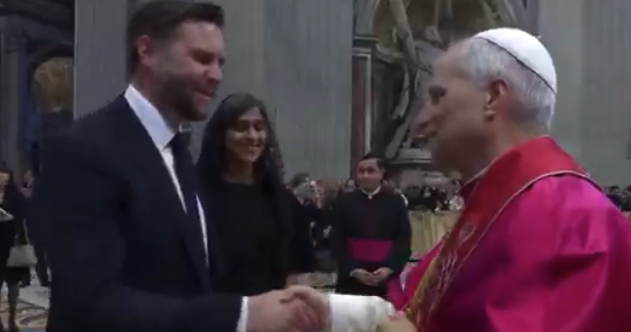A high-profile meeting at the Vatican signals potential shifts in U.S.-Vatican relations under the Trump administration, as Leon XIV embarks on his pontificate.
Others are reading now
As Pope Leo XIV begins his new pontificate, he is also stepping into an increasingly delicate role on the international diplomatic stage.
On Monday, the newly elected pontiff received U.S. Vice President JD Vance in a formal audience at the Vatican—an encounter that reflects both the ceremonial and political weight of his new position.
The audience, as reported by Digi24, followed Sunday’s inaugural mass in St. Peter’s Square, which drew nearly 200,000 faithful and dignitaries, including heads of state and royals from around the world. Vance attended the ceremony alongside U.S. Secretary of State Marco Rubio and their spouses.
Vatican-U.S. Relations: A Strategic Meeting in Rome
Despite Pope Leo’s earlier public criticism of Donald Trump’s immigration policies—statements he had reposted before assuming the papacy—the tone of Monday’s meeting was cordial. A Vatican communiqué emphasized the “good bilateral relations” between the Holy See and the United States.
Also read
Vance and Leo XIV discussed “current international challenges,” with both parties expressing hopes that humanitarian law and international norms would guide peace efforts in global conflict zones.
After his audience with the pope, Vance also met with Archbishop Paul Richard Gallagher, effectively the Vatican’s foreign minister. These discussions suggest that despite ideological differences, both sides are keen to maintain—and possibly expand—pragmatic engagement.
Pope Leo XIV and JD Vance Address Global Conflicts
Vance, speaking after the meeting, struck a reconciliatory tone. “The United States is very proud of the new pope,” he said, adding that his prayers were with Leon XIV “as he embarks on this very important mission.” The statement follows a broader diplomatic effort by the Trump administration to reaffirm Western alliances amid shifting global dynamics.
While the Vatican has long played a role in quiet diplomacy, especially on issues of peace and migration, Leo XIV’s U.S. connections—as the first pope born in America—may give him a unique position in navigating tensions between spiritual leadership and political realities. His earlier critiques now stand beside a growing need for constructive dialogue with Washington’s current leadership.
Whether this meeting marks a cooling of previous criticism or a new era of candid diplomacy remains to be seen. But one thing is clear: Leo XIV intends to be both a pastor and a political actor on the world stage.



